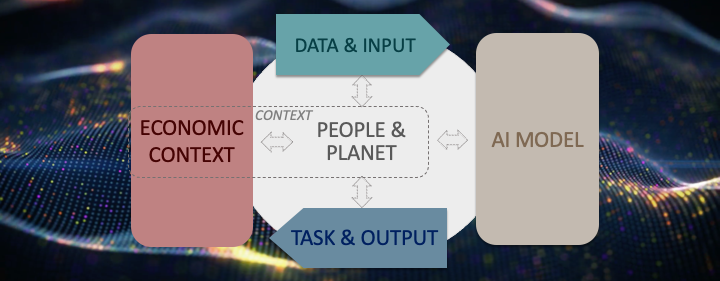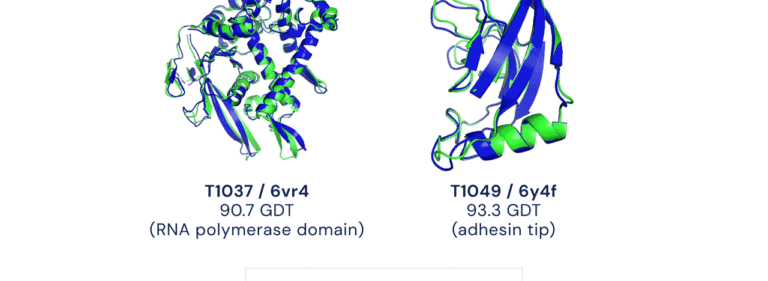The OECD programme on AI in Work, Innovation, Productivity and Skills (AI-WIPS) - with the support of Germany – analyses the impact of AI on the labour market, skills and social policy.
AI performance
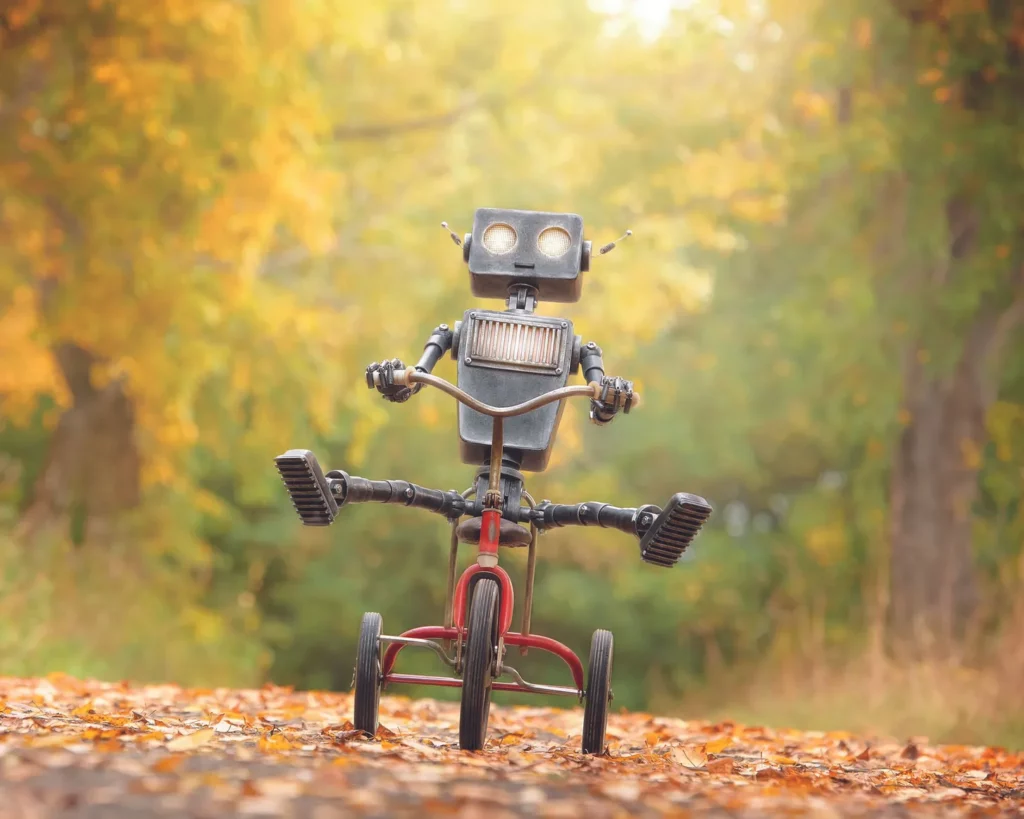
Do we really know anything about AI Capabilities?
Depending on the source, artificial intelligence (AI) is either set to save the world or destroy it. In a landscape dominated by hype and fear, clear, reliable and nuanced information about the true capabilities of AI remains strikingly absent. Even AI developers do not understand the current capacities of AI systems — or how rapidly they are advancing.
As an independent and authoritative international body, the OECD is well positioned to fill this knowledge gap. Drawing on its experience of comparative assessment, extensive collaboration with leading computer scientists and engineers, and its international perspective, the OECD has developed a unique methodology to deliver rigorous, evidence-based and clear insights into the real-world performance of AI. This framework offers policy makers the clarity they urgently need to navigate an increasingly complex technological environment and craft informed, future-proof strategies.
The OECD AI Capability Indicators
The OECD AI Capability Indicators presents an evidence-based framework designed to help policy makers understand what AI systems can and cannot do. Developed over five years with input from a broad network of AI researchers, psychologists, and other experts, the indicators compare AI capabilities to human abilities across nine domains.
Each domain is structured on a five-level scale, where higher levels represent more complex and human-like abilities. The indicators highlight what AI systems can perform reliably at each level, drawing on peer-reviewed evidence and expert analysis.
Explore the AI Capability Indicators Webtool
Education and Jobs
Artificial intelligence is advancing quickly, but not every breakthrough is likely to transform how we work or learn. The OECD AI Capability Indicators offer a new framework for understanding where AI systems may be approaching human-like abilities—such as reasoning, communication, or creativity—and how this progress could potentially affect jobs and education systems.
Assessments Repository
The OECD AI Assessments Repository aims to establish a comprehensive collection of validated AI capability assessments across various systems, applications, and research projects. These tests, assessments, or benchmarks offer standardised reference points for comparing AI capabilities across the nine key indicators and five capability levels established in the OECD AI Capability Indicators framework.
Contribute to the OECD Assessments Repository
About us
The OECD launched the Artificial Intelligence and the Future of Skills project to develop a programme that could assess the capabilities of AI and robotics and their impact on education and work. Considering both expected future development of AI and existing research, AI and the Future of Skills project aims to develop a new set of measures to serve as a foundation for research and policy on how AI and robotics will transform skill demand and educational requirements in the decades ahead. It addresses the following concrete questions:
- What human capabilities will be too difficult for AI and robotics to reproduce over the next few decades?
- What education and training will be needed to allow most people to develop some work-related capabilities that are beyond the capabilities of AI and robotics?
For more information about this work, you can consult:
You can contact the team via futureofskills@oecd.org.
Blog posts
More related postsVideos
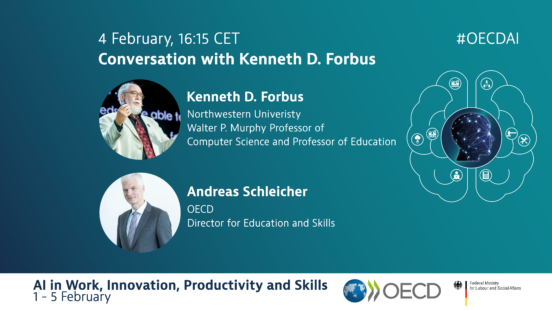
Conversation with Kenneth D. Forbus
–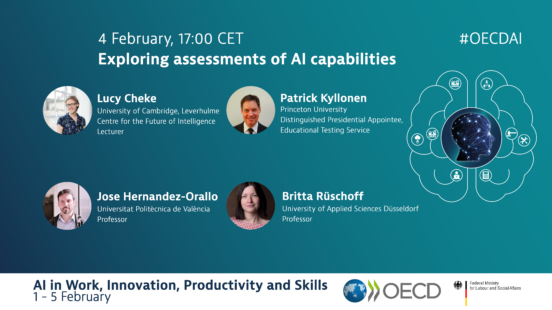
Exploring assessments of AI capabilities
–
Can AI Read and Count? Assessing Computers with an OECD Test
–
Benchmarks and competitions: How do they help us evaluate AI?
–Publications
Computers and the Future of Skill Demand
Computer scientists are working on reproducing all human skills using artificial intelligence, machine learning and robotics. Unsurprisingly then, many people worry that these advances will dramatically change work skills in the years ahead and perha...
AI and the Future of Skills, Volume 1 : Capabilities and Assessments
Artificial intelligence (AI) and robotics are major breakthrough technologies that are transforming the economy and society. The OECD’s Artificial Intelligence and the Future of Skills (AIFS) project is developing a programme to assess the capabiliti...


























